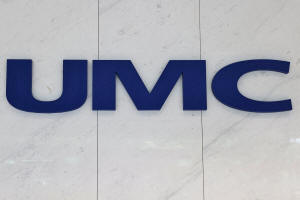|
UMC,
whose clients include U.S. company Qualcomm Inc and Germany's
Infineon, has benefited from a global semiconductor shortage
that has kept chipmaker order books full in the past two years
or so.
But demand has slumped in recent months as soaring inflation,
rising interest rates and a gloomy world economic outlook have
led consumers and businesses to tighten spending.
"Given the soft global economic outlook for 2023, we expect the
current challenging environment to persist through the first
quarter as customers' days of inventory are still higher than
normal while order visibility remains low," Co-President Jason
Wang told an earnings call.
"To manage this period of weakness, the company is implementing
strict cost control measures and deferring certain capital
expenditures where possible." I
The company's 2022 capital spending was $2.7 billion, less than
the $3 billion previously planned, with 2023 spending set at $3
billion, said finance chief Chitung Liu, adding new capacity
would come online in the third quarter in the southern Taiwanese
city of Tainan.
The automotive industry, which was hit hard by global chip
shortages, was expected to be a "key growth catalyst" this year
and beyond, given the move to electric vehicles, Wang added.
The company reported a 14.8% year-on-year rise in fourth-quarter
revenue to T$67.84 billion ($2.24 billion), although that was
10% down compared to the previous quarter with wafer shipments
falling 14.8% quarter on quarter.
Bigger Taiwanese rival TSMC, the world's largest contract
chipmaker, last week reported a 78% surge in fourth-quarter
profit, but warned that first-quarter revenue would drop as much
as 5% and it would slash annual investment.
Shares in UMC closed 1.1% down on Monday, underperforming a 0.7%
rise in the broader market. They have gained 10.3% so far this
year, giving the company a market value of $18.7 billion.
($1 = 30.3030 Taiwan dollars)
(Reporting by Ben Blanchard; Editing by Edmund Blair)
[© 2023 Thomson Reuters. All rights
reserved.]
This material may not be published,
broadcast, rewritten or redistributed.
Thompson Reuters is solely responsible for this content.

|
|





